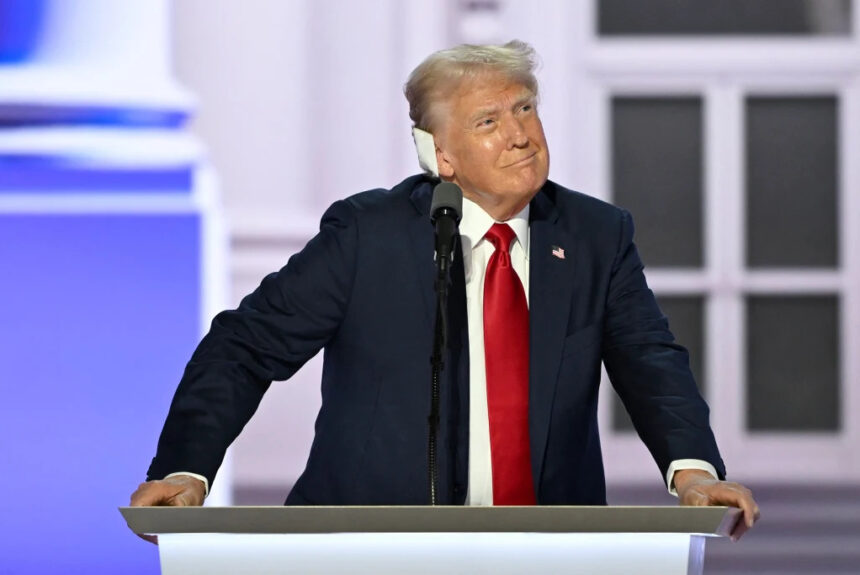Ballooning energy costs are top-of-mind for voters after years of high inflation. Energy security is increasingly critical in a world rife with conflict. The electorate, including conservatives, have grown more environmentally conscious as the planet warms but do not want to overpay to cool it. All the while, the left’s populist energy subsidies have multiplied in cost and exacerbated deficits while the country careens towards a fiscal cliff.
This opens the door for conservatives to capitalize on their hallmark issue: the economy. Doing so requires a strategic antidote to populism, not pandering soundbites of alternate, conservative-branded populism. An economic freedom agenda would reduce deficits and energy costs, strengthen energy security, and help stabilize the climate.
>>> Impact of Hurricane Helene Highlights the Importance of Innovation in Disaster Relief
But first, those on the right need to reestablish what it means to be conservative. Conservative energy is too often defined by technology, be it nuclear, oil, natural gas, or otherwise. But steel, electrons, and molecules don’t carry political affiliations. While the left may consider renewables and electric vehicles progressive technologies, conservatives would be wise not to play the big government game in reverse.
The right needs an “all-of-the-above” energy strategy that embraces entrepreneurship and consumer choice. That does not mean reducing permitting burdens for resources they prefer and ending subsidies only for progressive-backed resources. It means a phase-out of subsidies for all mature technologies alongside technology-neutral permitting reform.
In 2023, conservatives led fiscal and permitting reforms that benefited the economy and environment. They should do so again. Private capital is brimming to build-out pipelines and transmission lines – both of which would help to lower energy bills and emissions. As such, pragmatists and conservatives should find a lot to like in Senators Manchin and Barrasso’s energy permitting package.
Conservatives have wisely begun to recalibrate their culture war posturing. In particular, the battle over progressives’ requiring corporate environmental sustainability and conservatives blocking legitimate business practices is costly and wrong. Progressives may be comfortable with forcing government values on the private sector, but true conservatives know the government has no business dictating business values.
>>> This Startup Uses Dead Leaves to Make Paper
Electric competition, which was a conservative legacy in the first place, should also be a priority for conservatives. Electric competition has yielded innovation, emissions reductions, enhanced reliability, better governance, and billions in cost savings. Returning to regulated monopoly utilities, as some conservatives suggest, is an invitation for higher costs and cronyism. Conservatives should instead fight to end the subsidies and mandates that undermine electric competition. Consumer interests are the priority, not privileged utilities that government gifted an exclusive franchise. Some consumer groups are already calling for expanded electric competition to save hundreds of billions of dollars.
In other areas, conservatives need to stay the course with a dose of pragmatism. For example, environmental regulation is best done in a surgical, light-touch, and legally sound manner that passes benefit-cost tests. Contrast that with fallacious electric vehicle and carbon capture regulatory fiats in the Biden-Harris administration, which increase costs and reduce consumer choice. Those regulations create market uncertainty as courts are likely to overturn them.
Acknowledging environmental problems need not invite economic sacrifice. It merely calls for results-over-symbolism solutions. Sometimes this appears heterodox, such as enabling low-emission, U.S.-produced oil and gas, which is environmentally advantageous in globally-integrated markets.
Conservatives should not pan green populism because of its valid intent – environmental improvement – but because it is a path to poverty that often fails to accomplish its green objective. Although some conservatives are tempted to defend green subsidies as certain constituents cash their checks, they must be reminded of their broader constituency: American taxpayers. Today’s subsidy regime is simply unsustainable.
Environmental liberty requires creative thinking. Carbon trajectories are far more sensitive to overregulation of new technology than conventional regulation of emitters. Overall regulation downsizing would achieve greater emissions cuts than green subsidies while actually benefiting the economy. That is, free market reforms deliver the benefits to the American family, workers, and the environment that populism purports to achieve.
America craves responsible leadership that can actually deliver affordable, reliable, and clean energy. Thankfully, economic and environmental responsibility share the same fate: healthy markets. Conservatives, recommitted to taxpayers, consumers, and the environment, should embrace energy freedom.
*This piece was originally published in Real Clear Policy.
The views and opinions expressed are those of the author’s and do not necessarily reflect the official policy or position of C3.
